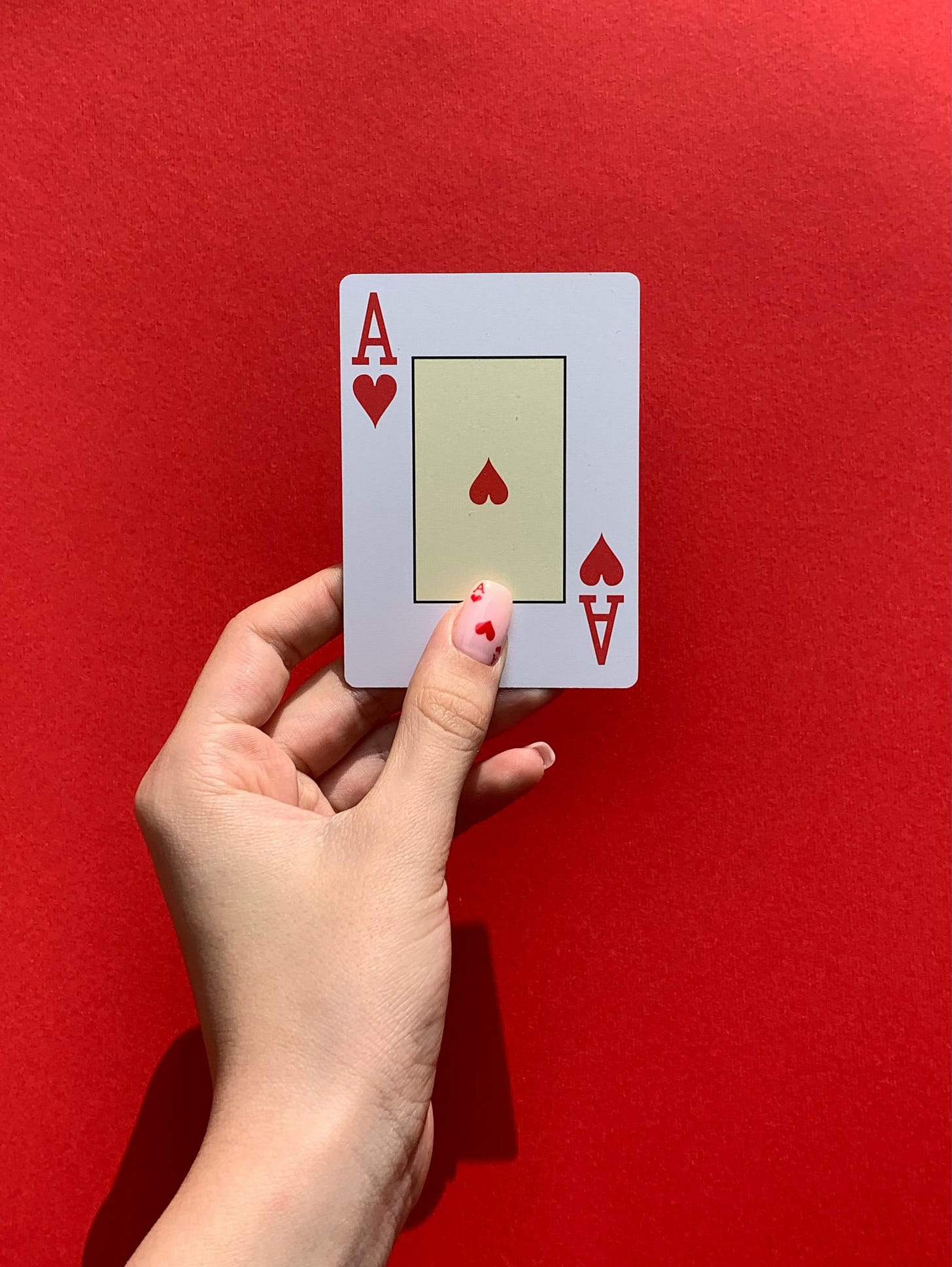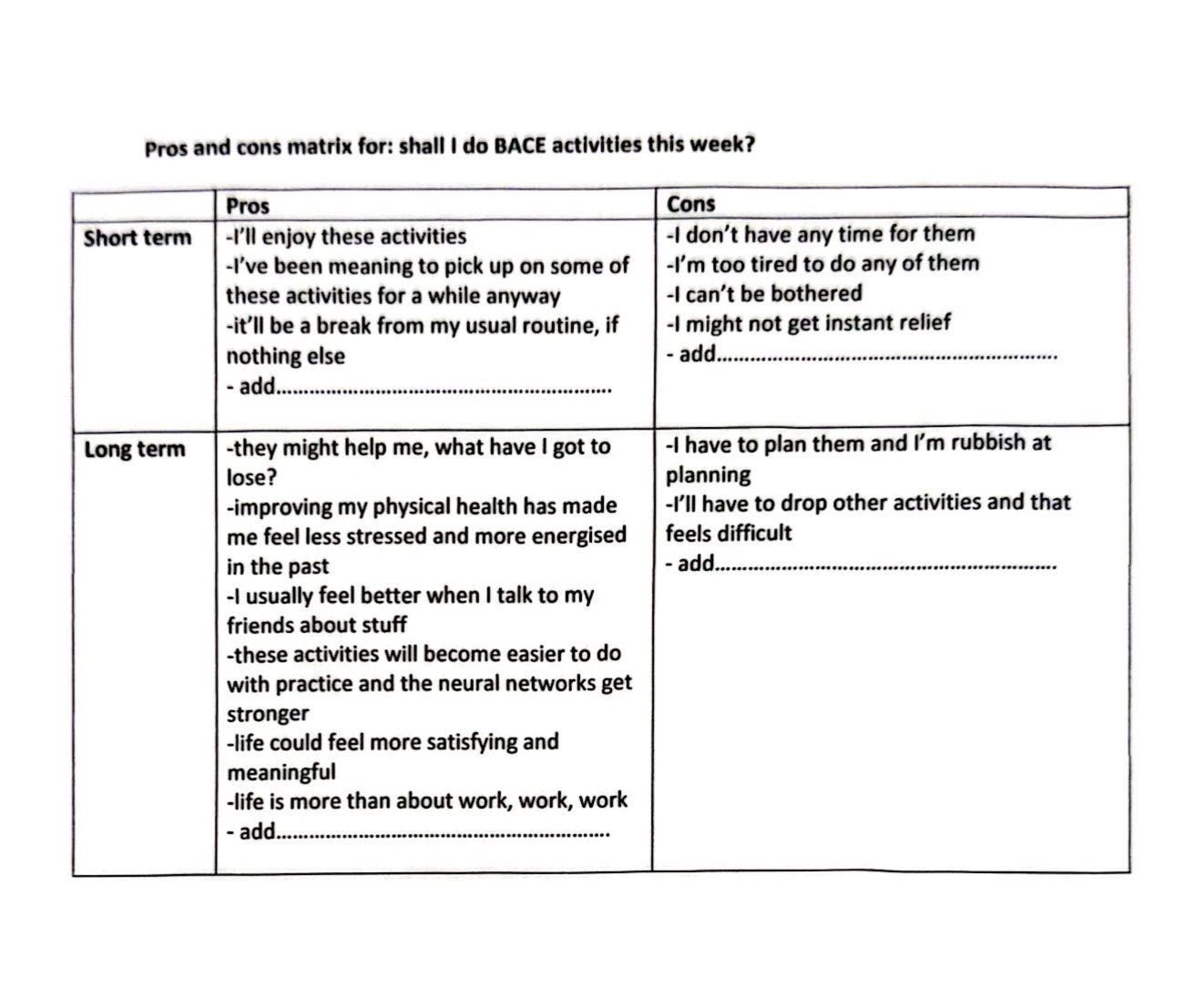BACE your way to an ace 2025
... turn your self-care intentions into action for a healthier, happier year
If you’re reading this publication in real-time, then Christmas Day is done and New Year celebrations are around the corner. Are you feeling reflective about the year that’s nearly gone or are you looking ahead to the one to come?
Perhaps you’re actively musing on how to achieve better health, happiness and resilience. The fast pace of modern life makes it easy to prioritise external demands over internal needs. Without regular self-care, stress accumulates, emotional resilience wanes, and burnout looms. Yet life’s demands often crowd out even our best-laid plans for self-care.
Work, rest and play
If you’re in your middle years, you might remember the old Mars chocolate adverts from the 1970s to 1990s, and their nostalgia-inducing jingle.
I always found the ‘work, rest and play’ slogan rather mesmerising for its seemingly wide reach - imagine all that from one chocolate bar! (Still only 15p back then.) Nowadays, the slogan resonates with me in a different way. When I’m treating clients who are overwhelmed, depressed or anxious, they’re usually still working (or over-working) and trying to get sufficient rest - but play is often completely absent.
Self-care is really about ensuring that you rest and play. By play, I mean recharging your batteries, rejuvenating your mojo, nourishing your soul and sense of wellbeing. Slumping in front of the tv might be restful but it won’t nourish or rejuvenate you. That requires more intentional and personally rewarding stimulation.
So here’s another slogan that might be useful: BACE activities for an ace life
Photo by Mariam Gab on pixels.com
What are BACE activities?
B is for Body care - activities that help you take care of and appreciate your body. Examples include showering, following a face-care routine, exercising, enjoying sex, choosing favourite clothes or jewellery, eating healthily, food prepping for the week, improving your sleep hygiene routine, doing yoga, climbing, having a massage, or simply sitting in the sunshine.
A is for Achievement - activities that give you a sense of satisfaction or accomplishment. These might include taking care of houseplants, reading, cooking, playing or making music, or tackling those tedious but necessary tasks like your tax return or house-cleaning. Completing these tasks frees up mental energy that would otherwise be spent procrastinating.
C is for Connecting with others - through phone calls, face-to-face conversations, video chats, online community groups, or platforms like Substack. It also includes interactions with animals, whether your own pet or someone else’s dog.
E is for Enjoyment - activities you simply enjoy, like painting your nails, solving Wordles or Sudoku puzzles, listening to podcasts, or gazing at artworks.
Some activities might overlap categories - for example, going to the cinema with a friend (E and C) or gardening (B, A, and E).
Why do BACE activities help?
These activities trigger the release of neurotransmitters that enhance mental and physical well-being:
Endorphins: Natural painkillers that foster a sense of well-being, released during activities like exercise, laughing, or listening to music.
Serotonin: Enhances mood and emotional stability, boosted by gratitude, healthy eating, and sunlight.
Oxytocin: Known as the “love hormone,” it strengthens feelings of connection through acts of kindness and compassion, including toward oneself.
Cortisol: While chronic stress causes harmful excess cortisol, moderate levels help the body respond to acute stress. Meditation and relaxation reduce cortisol, promoting calmness.
Dopamine: Central to motivation and reward. Its release encourages us to repeat effective self-care actions, by creating a pleasant sense of reinforcing satisfaction after a workout.
Scheduling BACE activities
Start by identifying activities in each category, including some short ones (15 minutes) and others for days off or holidays. Schedule two or three from each category into your diary for the next week. Spread them out - don’t save them all for the weekend. We need regular play, not just occasional bursts.
It’s critical to sit down with your diary weekly to plan exactly when you’ll do each activity. Writing them down scaffolds working memory (often poor in ADHD) and provides an accountability nudge. Plus, crossing tasks off your list feels satisfying!
You can find a weekly BACE planner here.
But I don’t have time for BACE activities!
At first glance, this thought seems totally plausible and true. But examining it closely might offer alternative perspectives. For example, you could create a pros and cons matrix for doing BACE activities this week. By weighing short- and long-term outcomes, you may uncover a more balanced view.
How does seeing these pros and cons in writing shift the belief that you don’t have any time for self care?
Putting BACE into practice this week
Create your bespoke list of BACE activities.
If you’re procrastinating, use a pros and cons matrix to boost your motivation.
Start with low-effort actions, like a 10-minute walk or a short chat with a friend.
Rate your well-being before and after activities on a 0–10 scale to track their impact.
If you notice quick wins, remind yourself of potential long-term benefits.
Ask yourself: Would you rather spend 15 minutes a day now, or risk losing more time to stress or burnout later?
Final thoughts: ease yourself into 2025
By leveraging this understanding of self-care, you can consciously cultivate habits that align with your brain's natural mechanisms for sustaining your well-being. By focusing on immediate relief and future gains, you can see BACE activities as an investment, not a chore.
Remember: you need to work, rest and play to lead an ace life!
Photo by Kelly Sikkema on Unsplash










I haven't heard of BACE before. I love this! I also like thinking about the simplicity of a 10-minute activity. It makes it feel more easily accessible.